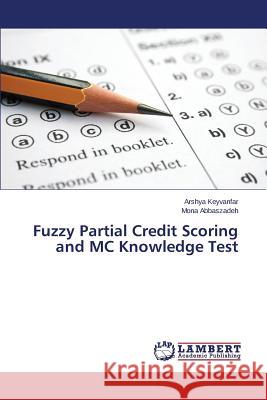Fuzzy Partial Credit Scoring and MC Knowledge Test » książka
Fuzzy Partial Credit Scoring and MC Knowledge Test
ISBN-13: 9783659715174 / Angielski / Miękka / 2015 / 136 str.
Fuzzy Partial Credit Scoring Method (FPCS) was proposed with the primary aim of moving beyond the zero-one view for measuring knowledge on MC tests. The present study compared 2229 test takers' ranks on the Master of Art (MA) Teaching English as a Foreign Language (TEFL) State University Entrance Examination )UEE( obtained through the application of both the FPCS method and the conventional correction for guessing scoring. The results revealed that there were more than 70 differences in more than 50% of test takers' ranks when the two scoring methods were compared. The findings also illustrated that the FPCS method had the greatest impact on the mid knowledge level, followed by low and high level test takers. Therefore, the researchers concluded that the FPCS method can include test takers' partial knowledge and by distinguishing random and informed guesses, it provides a more reasonable ranking on the high-stake tests. The findings of this study signified the importance of paying much more attention to measuring test takers' knowledge on high-stake tests especially in higher education Entrance Examinations in which the gates open only for a limited number of individuals.
Fuzzy Partial Credit Scoring Method (FPCS) was proposed with the primary aim of moving beyond the zero-one view for measuring knowledge on MC tests. The present study compared 2229 test takers ranks on the Master of Art (MA) Teaching English as a Foreign Language (TEFL) State University Entrance Examination )UEE( obtained through the application of both the FPCS method and the conventional correction for guessing scoring. The results revealed that there were more than 70 differences in more than 50% of test takers ranks when the two scoring methods were compared. The findings also illustrated that the FPCS method had the greatest impact on the mid knowledge level, followed by low and high level test takers. Therefore, the researchers concluded that the FPCS method can include test takers partial knowledge and by distinguishing random and informed guesses, it provides a more reasonable ranking on the high-stake tests. The findings of this study signified the importance of paying much more attention to measuring test takers knowledge on high-stake tests especially in higher education Entrance Examinations in which the gates open only for a limited number of individuals.











